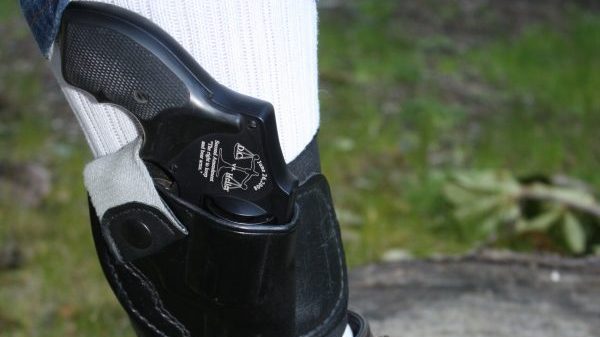
The timing is important, because the debate over national concealed carry reciprocity is heating up as opponents in the gun prohibition movement double down with their arguments against leveling the field between criminals, terrorists and their intended victims. Those arguments are questionable at the very least.
For example, the Associated Press is reporting that Americans for Responsible Solutions (ARS), described as a “national gun safety group,” is stirring up opposition in New Mexico, claiming that the proposed federal reciprocity law “would undermine New Mexico’s rigorous training and screening standards for concealed carry licenses.”
The story doesn’t explain how the state’s requirements would be undermined, so essentially the Associated Press accepted that allegation without challenge. After all, the AP identifies ARS as a “gun safety” group, when it is really a gun control lobbying organization.
The Philadelphia Inquirer is running an Op-Ed by Charles H. Ramsey, former Philadelphia police commissioner, which claims, “Right now, lawmakers on Capitol Hill are debating a dangerous proposal that would force each state to recognize the concealed-carry laws of other states, even those that have far weaker standards.” That’s not what the national reciprocity proposal does at all.
The proposed legislation, with some 200 co-sponsors, merely requires that states recognize the concealed carry permits and licenses issued by other states. Armed citizens must still comply with the laws of the states in which they might be traveling, same as if they are driving in a different state and run afoul of a local traffic law.
Liberty Park Press noted July 26 that gun control advocates who had long argued for licensing gun owners the same as drivers have dramatically changed their position with the growing possibility of a national concealed carry reciprocity law. If gun owners are licensed, those licenses ought to be recognized by other states, same as driver’s licenses, and anti-gunners don’t like that at all because it expands – perhaps restores – gun owners’ rights across state lines that they enjoyed generations ago.
All this happens as the Colorado Springs Gazette is reporting a 56 percent surge in carry licenses in the Centennial State since December. That’s based on a report from the Crime Prevention Research Center, according to the newspaper.
USA Today is reporting that there are “about 1.15 million active gun-license holders (in Texas), according to the Texas Department of Public Safety.”
An update from the Arizona Department of Public Safety shows there are now 318,988 active carry licenses in the Grand Canyon State, up from 296,228 in December.
And in Washington State, the Department of Licensing reports that there are now 586,948 active concealed pistol licenses, up from 571,476 on Jan. 3.
In his Inquirer Op-Ed, Ramsey laments that, “Twelve states — including Pennsylvania’s neighbor, West Virginia — do not require any permit or training to carry hidden loaded guns in public. If this bill becomes law, almost any person from these states would instantly be able to carry concealed in Pennsylvania, regardless of whether that person meets the commonwealth’s standards for carrying a concealed gun in public. This not only puts communities in danger, it makes it harder for law enforcement officers to do their jobs.”
Does Ramsey honestly believe that criminals aren’t carrying “hidden loaded guns in public” right now without the benefit of training? It’s a smokescreen argument.
Time will tell whether the law in Texas works, and that might be worth discussing in Dallas Sept. 29-Oct. 1 when the annual Gun Rights Policy Conference unfolds there.